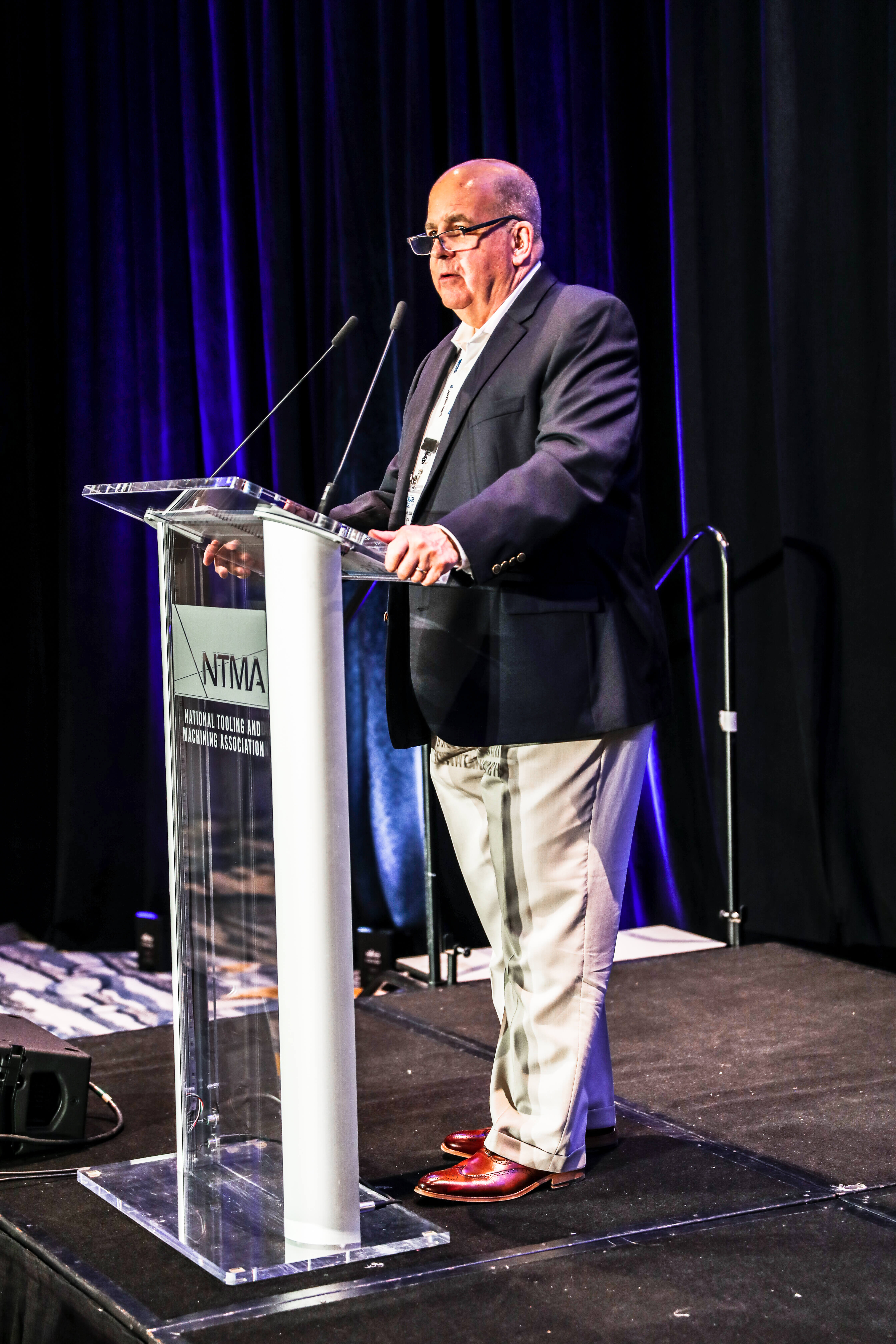
Manufacturing isn’t for the faint of heart. If you run a modern machine shop, you know that working in precision machining is full of extreme highs and lows.
NTMA will be the first to tell you that there are no one-size-fits-all solutions to the problems small to medium-sized machine shops are bound to face. But there is one proven path forward: collaborating with your peers and effectively leveraging the resources available to you.
Recently, NTMA President Roger Atkins joined Curt Anderson for an excellent discussion on the future of manufacturing, where he cited collaboration and networking as the keys to success.
The Beauty of Collaboration in Precision Machining
When Roger was just getting started in precision machining, he worked with his father. His father was a machinist by trade, but Roger was drawn to the sales and marketing aspects of the industry. As a team, they were more successful together than they could have been on their own.
That lesson stuck with Roger and would eventually help inform his vision for NTMA. During his time working in the turbulent oil and gas industry in Texas, Roger further realized that relationship-building was the key to business success.
This principle proved true when Roger moved on from his father’s company and found his next job through a connection he met at his first NTMA meeting. From there, he built an impressive career leveraging his NTMA connections at every turn.
Modern Machine Shops Can Leverage Strength in Numbers
Small machine shops tend to think that they don’t have much power. But what they don’t realize is that 75% of manufacturing businesses have 20 or fewer employees. The 1,100 members in NTMA alone account for a collective $35 billion in revenue. Manufacturers are integral to the American economy and can harness immense power simply by working together.
The key is recognizing that we’re all on the same team, whether we’re trying to influence economic policy on a national level or contribute to our local communities.
This solidarity isn’t just limited to machinists, either. It includes manufacturers in other parts of the industry as well. You may look at the nearby additive manufacturing shop as a threat to your business, but you can be an asset to one another if you’re open to collaborating. Incorporating additive manufacturing in your supply chain, for example, could help you attract entirely new customers.
NTMA prioritizes networking and collaboration because we know that the future of precision machining depends on how well we can unite to solve our collective problems. At the end of the day, we’re all facing the same supply chain uncertainties, economic disruptions, and cultural shifts—so why not overcome these challenges together?
Join NTMA today for instant access to a network of like-minded peers and helpful resources for strengthening your business.